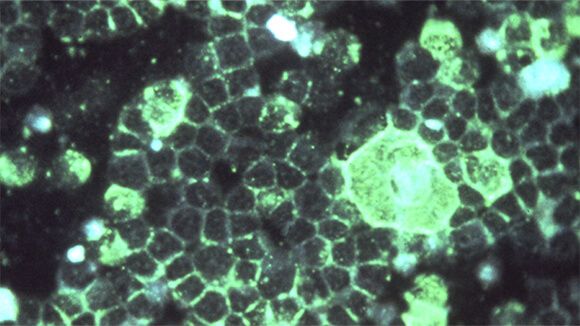Harnessing the Power of mRNA to Transform Medicine
The COVID–19 pandemic crystalized the scientific opportunity of mRNA, and the application of this adaptable novel technology platform has far-reaching potential. Messenger RNA or mRNA is a set of instructions that cells in the body follow to make specific proteins. Proteins play many essential roles in our bodies, including helping to prevent infections and potentially treat diseases. Many of the advantages of mRNA technology—its flexibility, speed, and potency—have scientists around the globe excited about its potential future applications.
The next wave of scientific innovation is upon us and Pfizer is working hard to harness the power of mRNA. We believe our expertise in disease biology, along with our robust, rapid manufacturing capabilities and talented scientific minds, will help propel the potential of this technology forward. In 2022, we’ve advanced our work and collaborated with new partners to help realize this incredible technology’s full potential and expand our ability to leverage this scientific platform beyond COVID–19.
Our current exploration of mRNA is focused on infectious diseases with development programs in flu and shingles, as well as exploring mRNA’s versatility in the areas of rare genetic diseases. Throughout the past year, we have made significant progress.
Influenza or Flu
Flu continues to cause hospitalizations and deaths across the world every year, so we recognize an important opportunity to develop a potentially more efficacious vaccine. In 2022, we started our pivotal Phase 3 studies for an mRNA-based influenza vaccine candidate. The ability to nimbly “edit” mRNA could provide a huge benefit when it comes to vaccines that must be updated annually. With traditional flu vaccines, scientists try to predict many months in advance which strains might circulate and match the vaccines to the predicted strains. mRNA technology could be leveraged to generate vaccines much closer to the onset of each flu season, which could result in better matches to circulating strains. This flexibility, paired with the ability to rapidly manufacture mRNA vaccines, could potentially allow greater reliability of supply and better strain match, which could lead to improved efficacy.
Shingles
Shingles is a debilitating, disfiguring and painful disease that affects people all over the world. In January, we announced a collaboration with BioNTech to develop a potential first mRNA-based vaccine for the prevention of shingles. We plan to start human studies for this vaccine candidate in 2023.
Rare genetic diseases
We’ve established a research collaboration with Beam Therapeutics to develop mRNA technology as a potential new approach to gene editing, which is a form of gene therapy. Gene editing works by delivering “tools” encased in lipid nanoparticles (fatty bubbles) that have the potential to replace, remove, or correct faulty genes in patients with rare diseases— providing a potential one-time treatment for these debilitating conditions. Our work is focused on rare genetic diseases of the liver, muscle, and central nervous system.
Our current exploration of mRNA is focused on infectious diseases with development programs in flu and shingles, as well as exploring mRNA’s versatility in the areas of rare genetic diseases.
Of course, Pfizer’s work in COVID–19 continues. We are also working to address emerging variants of concern with the introduction of the BA.1 and BA.4/5 bivalent vaccines to many countries across the world. Along with our collaboration partner BioNTech, we are advancing the next-generation of vaccines for SARS-CoV-2 and investigating a novel combination vaccine candidate against COVID–19 and influenza that could provide protection against these two infections with one vaccine.
We are looking forward to more scientific advances with Pfizer’s mRNA efforts in 2023 and beyond.


